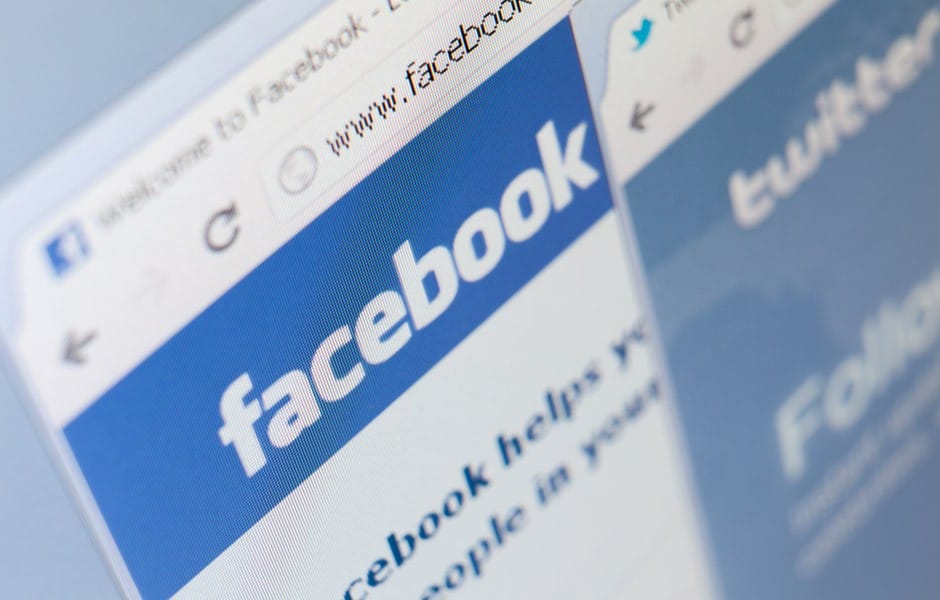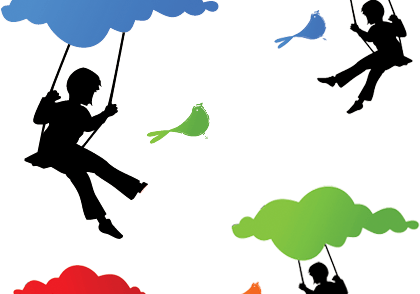Facebook and Twitter are marketing staples for business. It can be difficult to make a distinction between the two and how each functions to meet a business’ objectives. And, as Facebook becomes more and more mainstream, marketers become more and more comfortable with it. To the point of overlooking Twitter’s value.
Facebook is for fans. Fans are people who already know the brand and have an affinity for it. Liking a Facebook business page signifies this sentiment and provides a way for people to subscribe to the brand’s timeline updates. Facebook is structured so that businesses are completely differentiated from people. People have profiles that can friend other people, initiate private messages, manage business pages and engage with content across the web. Companies are limited to posting media through a business page or purchasing advertising to get their messages in front of people. It is not acceptable etiquette for brands to reach out to individuals, friend others or comment on posts to personal Facebook profiles. Creepiness factor reaches a ten and Facebook could ban you from the site. As a brand you must bait your business page timeline with clever content in wait for fans to engage with it so that you can in turn engage with them.
Among the social networks Facebook is one of a few to prohibit companies and entities from the networking features that “real people” enjoy. LinkedIn takes a similar approach. Twitter on the other hand, lets you do the following:
- People and brands have the same type of profile.
- Brands can follow or be followed by anyone in the network. (note: follow = liking, friending or subscribing in other networks)
- Brands can be found easily through social search based on keywords from status updates posted or its Twitter handle and profile information.
- You can change your Twitter name (handle) as much as you’d like without ever having to start over.
- Famous brands can get their Twitter name verified so there is no confusion on which profile is their official one.
- Brands can network like people and jump into any conversation happening anywhere, not just passively monitor it.
- Brands can do outreach to engage with strangers and invite them into their conversation. Even if they’d never heard of you before.
- Brands and people can use hashtags to participate in a topical conversation with others without ever having to follow each other.
In short, a brand can perform influencer outreach using Twitter because it is a world conversation that allows strangers to talk with each other. It also facilitates listening with response. Here’s what I mean by this. Facebook’s network is as we’ve all heard is the “walled garden” so there are not very many posts about a brand that surface into the public realm. You’d need to utilize a listening tool to capture brand mentions and when you do find something you have limited action based on Facebook’s etiquette and platform. As a brand you cannot respond to a person’s post to their personal timeline, you as the admin of your brand page could do so personally. This means that me as “Melonie Gallegos” would be carrying about on a strangers timeline who probably had no idea their post was public in the first place. I would then have to explain to this person that I work for xyz brand and who knows, they might even try to friend me after our exchange. Is anyone else thinking “awwwkward…”? The second option is to do all of the above through a private Facebook message with the unsuspecting recipient. This makes it only slightly less awkward. Keep in mind; I am not referring to a post made on a brand’s page. I am referring to status updates mentioning a brand keyword posted to a person’s profile. Another factor to keep in mind is that Facebook’s guidelines allow for each person to own one personal profile, so it isn’t feasible to create a set of company profiles to manage this type of scenario. It is technically possible to do but if you eventually get caught you could lose your real personal profile, your company’s profiles and you put your business page in jeopardy of also getting shut down. Not fun.
Twitter is a world conversation. There are two ways to participate; 1. an open profile where all posts are private (the default), 2. a private profile where only approved followers can see your tweets. The expectation on Twitter is that what you say is public, making it a common place for people to sing the praises and problems of their experiences with brands. People expect “the good companies” to respond to these posts because they should be listening. This puts an additional responsibility on brands to be present. But, it also creates an opportunity for a brand to grow its audience or its footprint. A brand can identify conversation opportunities in real time and respond. That includes business development opportunities. If you sell printer ink and someone asked the twitterverse (universe+twitter) “Where’s the best place to get ink?” Well, jump in and tell ‘em! And, Twitter followers are fans too. People will follow and mention their favorite brands when they are enjoying their products or services in status posts, Yelp syndication, Foursquare checkins and Instagram photos which are typically fun and positive. All for the world to see whether they are following or running a Twitter search on these topics.
I know how much everyone loves Facebook. We’ve all grown quite comfortable with it. But you know “love is blind” so don’t underestimate the power of Twitter for business. The beauty of the open platform is that Twitter is what you make of it.



1 Comment
[…] Brands With Fans | Social Media Marketing Blog. Social marketing for brands and professionals. A Fandom Marketing publication. All · Contact Me · Home …brandswithfansblog.fandommarketing.com/why-twitter-could-… […]